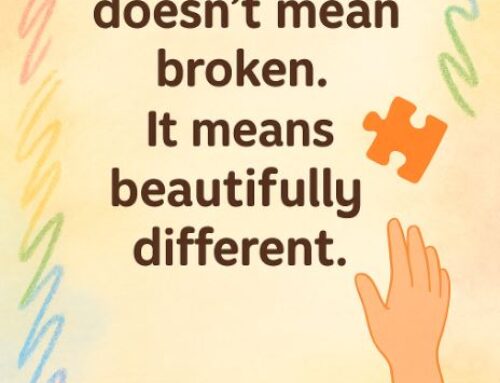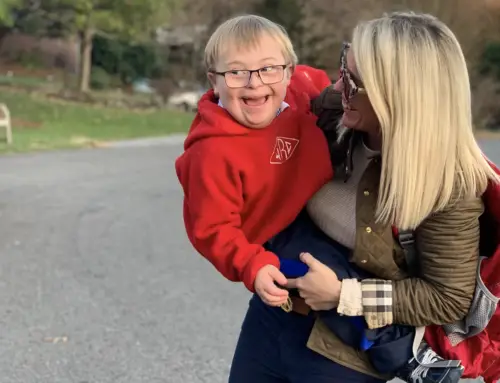This unthinkable just happened. You’re leaving the doctor’s office with life altering news, your child has just been diagnosed as having special needs. You’re so flooded with emotions you feel numb. You feel shock, denial, heartache, confused, guilt, alone, anger, and inadequate for the road ahead. While all these emotions are completely normal we as special needs parents MUST work past them. Now I’m not saying you need to suck it up and get over it. I’m saying you must give yourself time to process all of these emotions and grieve what the diagnosis means.

We were told Ladybug had cerebral palsy within weeks of bringing her into our family. Within one minute my mind was flooded with thoughts ranging from this isn’t what we signed up for, to how in the world am I going to be the mom she needs me to be. Then my mind went to being thankful God brought her to us. Here, she could have a chance at the medical treatments she would need.
I also went through denial waiting for the scheduled MRI to confirm the diagnosis. I was convinced the doctor was wrong and our little girl was completely normal. However, a few weeks later my fantasy was crushed, the results were in, there was no more denying the fact that Ladybug was in fact a special needs child. I didn’t know what to feel. I certainly didn’t know I would need to grieve the diagnosis.
We were asked my a few people what we were going to do about it. The adoption wasn’t final yet, we could back out. For us this was never an option. We had committed ourselves to being her parents. We were in love with her from day one. To us, the situation was treated as if I had given birth to her. Besides; what were we going to do, send her back to Haiti which had just experienced the devastating earthquake? Not for a minute did we ever consider this.
Why We Need to Grieve
Although we never dreamed of giving up on being Ladybug’s parents, we did have to go through the grieving process. Why is this process so important? Because if you don’t you’ll park yourself in the initial feelings you felt when receiving the diagnosis. When you park yourself in these feelings of heartache, anger, loneliness, loss you will find yourself going down a slippery slide into emotional darkness. When this happens it’s hard to take care of yourself, let alone your family.
So what does it mean to grieve a diagnosis? When your child is born (or adopted) the sky is the limit, you have so many dreams for your child. You dream of all those precious milestones everyone brags about on facebook, and can’t wait to share them too. You dream about cheering them on as they join various sports teams. Dream of academic success and what they will be when they grow up. But when the doctor says one sentence, all of those dreams are shattered. Now you find yourself asking if your child will ever walk, or talk, or sit up. Everything you had planned for your child is now just a fantasy.
This is devastating to say the least. So let yourself feel the emotions you are initially flooded with, but don’t let them consume you. Work through these feelings, ask the questions you need to ask. Lean in to God. Seek support groups. Communicate with your spouse, they’re feeling all these things too so help each other grieve and work through them. You must grieve the loss of all of those expectations you had for your family.
I know it sounds weird to say you need to grieve because after all your child is still here with you. Even though your child is still here with you, the initial dreams may be dead. I’m not saying this will be easy. I’m not even going to tell you that the need to grieve will ever truly end. For me it comes in cycles, especially in the early years when she should have reached another milestone.
Hope After Grieving
I will promise you this, as you grieve and process through the emotions you’ll start to feel hope. You will start to see the many blessings that come with raising a special needs child. You will learn to embrace everything about them. Your love for them will overflow. You will find incredible joy in watching them work so hard to make just a little progress, and rejoice with them when they accomplish it. You will begin to dream new dreams.







[…] your reality and settled into your “normal” something triggers those feelings of grief. I’m talking about the grief that your child may never walk, become potty trained, […]
[…] the things our children can’t do. It’s not uncommon to go through another cycle of grieving the diagnosis. This happens both when we as parents are trying to pick out gifts, as well as […]
[…] time can make her feel more invisible than ever. Plus, it’s a time when the special needs grieving process can be especially hard. Let her know you value her […]